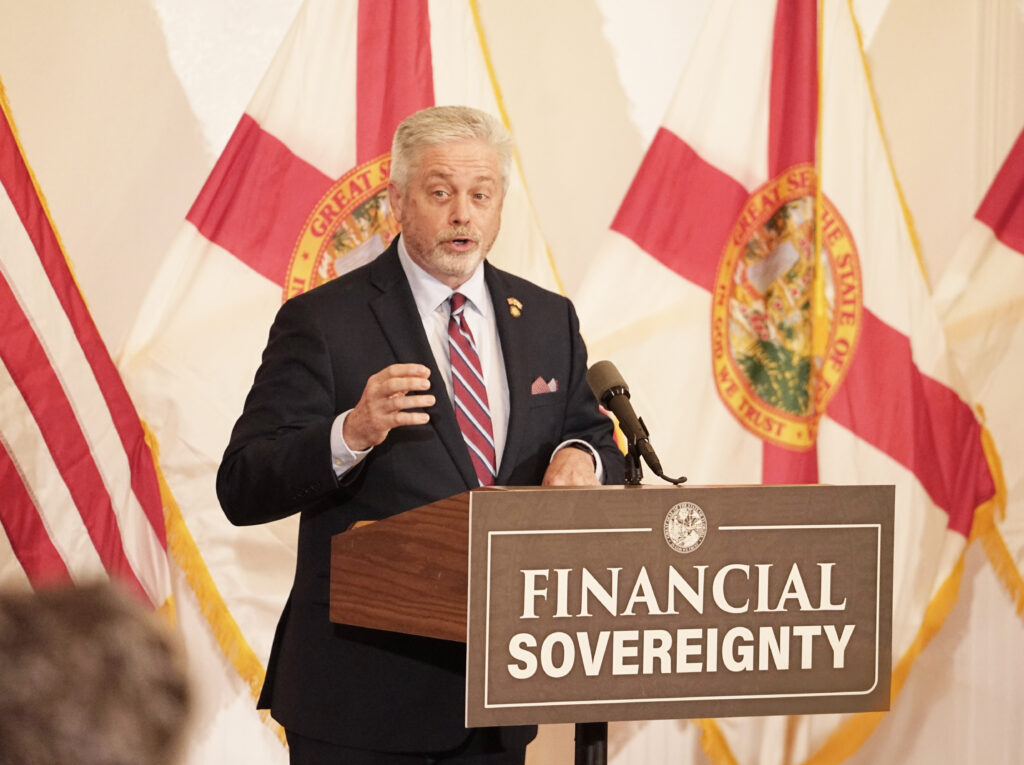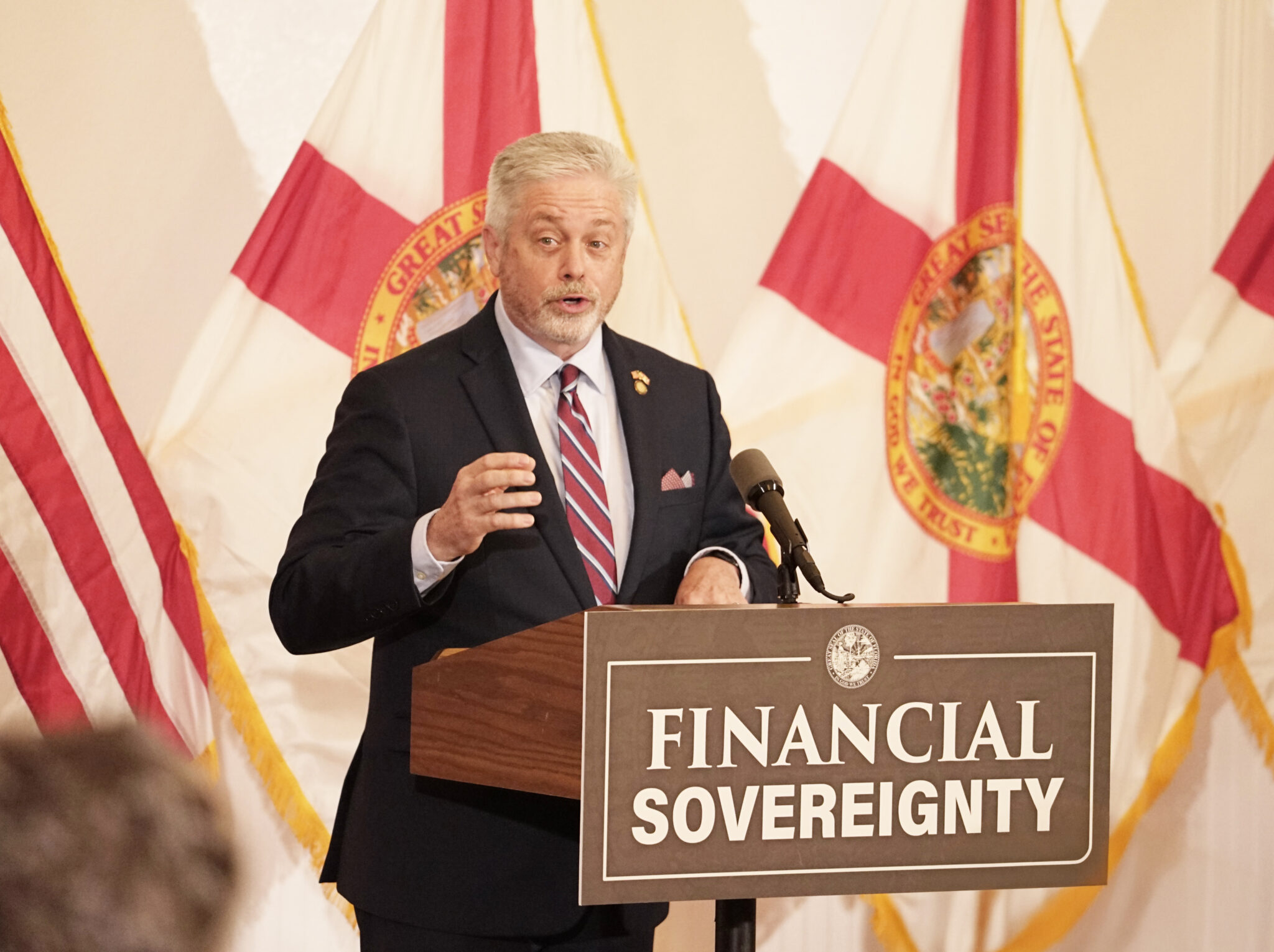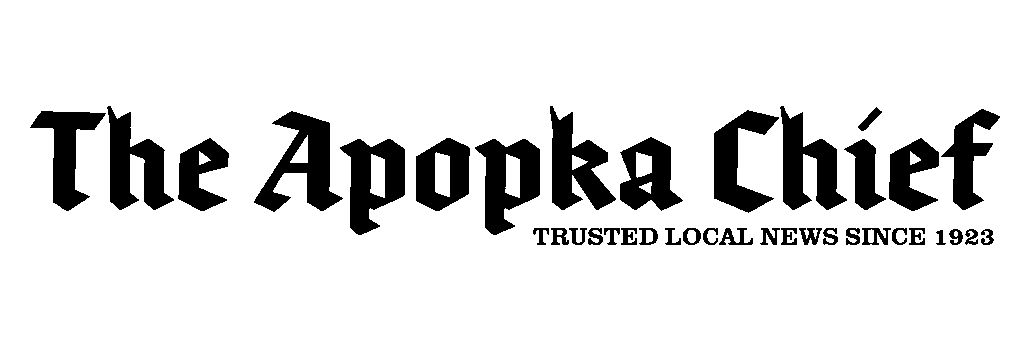
Key Points

During the session, Bankson introduced three bills the governor then signed into law and co-sponsored nine other successful bills. This week, he shared his written reflections on the session in response to questions from The Apopka Chief, including following up on the predictions he made in February.
This interview has been edited for clarity and length.
Q: In an earlier interview with the Chief, you predicted that the recently concluded legislative session would prioritize immigration, insurance, and fiscal policy. How were those priorities handled?
Bankson: Though these were all a part of the overall focus, the main priority seemed to be fiscal policy and the tax environment overall, with a bit of battling as to how to get it accomplished. The end result was a balanced budget and a $1.3 billion reduction in taxes. We were also able to replenish the popular My Florida Home funds as the state and homeowners continue to recover from the past storm damage and harden homes against future storms.
I was pleased that my bill to repeal the tax on the purchase of precious metal bullion under $500 was included in the tax package. This will especially benefit those on the lower end of the economic spectrum to be able to begin building their future economic stability.
I’m also thrilled to announce that we were able to completely end the business rent tax, which will be a real benefit to small businesses.
The budget is, of course, still subject to the governor’s approval or line-item veto. If it is approved, the budget will go into effect on July 1.
Q: You also mentioned that House Speaker Daniel Perez asked representatives to use the word “budget” instead of “appropriations.” Do you believe that slight change in language made a difference?
Bankson: Yes, I do, not only because of the imagery it creates to think like the average Floridian must with their own budget, but it was his constant theme. He stressed both parties taking ownership of spending patterns and remembering that the economy best flourishes when in the hands of the citizens. We had a couple years of increased spending due to COVID money flowing in, but if we continued on that course, we would burden future legislatures, ourselves and our children with difficult challenges. I am pleased with his principled approach to being responsible with the future as well as meet the needs of today.
Q: Your top priorities this session were education and workforce. What did their respective committees accomplish this session?
Bankson: I am pleased that we were able to raise teacher salaries for the third straight year—actually the fourth under the governor—and continue to face the challenges of funding education overall while preserving the wildly popular school choice agenda. Following up with last year’s bill to deregulate the public schools, we continued to focus on ways to better the whole picture of education in Florida, again turning the focus to the student and empowering parents to make the best choice for their child.
There were some bills that had promise that didn’t make it through the process, but we were able to pass the Apprenticeship and Preapprenticeship Program Funding bill (HB 681 Melo/DiCeglie), which reduces bureaucracy to prevent administrative costs from draining resources while aiming to strengthen Florida’s skilled workforce. The bill will provide individuals with invaluable hands-on training while preparing them for successful careers.
Another great bill was the Aerospace Industry bill (SB 1516 Wright/Kendall), which the governor signed into law at the Paris Air Show. This bill establishes the intentional aerospace innovation fund (IAIF) administered by Space Florida. IAIF will accelerate global aerospace innovation by funding collaborative research and development projects, workforce development initiatives and commercialization efforts.
He also signed the transportation bill in Paris, which was a bill I co-sponsored (SB 1662 Collins/Abbott/Bankson). This bill included the vertiports legislation I’ve championed for the last couple of years, finally making it into law and encouraging the further development of industry and jobs in an emerging market.
Q: How did your work on the Apopka asbestos pipe replacement turn out this session?
Bankson: I am thrilled to report that we were able to get this to the governor’s desk with an amount of $1,057,500 in local funding toward the project. This was a challenge, but I made it a top priority of mine and have sent a follow-up letter to the governor asking for his support to keep this in the budget.
I’ll also mention I was able to get $1,750,000 in the budget for the Winter Garden Crest Ave. Wastewater Treatment Facility, which affects our beloved Lake Apopka. Special thanks to Senator [Keith] Truenow for his support in getting both of these projects through on the Senate side.
Q: How will the city of Apopka improve as a result of this session?
Bankson: As a state representative, I now serve not only Apopka, but much of western Orange County and part of western Seminole County as well. With approximately 185,000 constituents, my thinking must be broad-based. However, my heart is still home here in Apopka. I believe all that we have done will benefit all of the district and individuals in particular.
I was pleased to get funding for Camp Thunderbird, which serves our developmentally challenged community. The STEPS facility in Apopka was also included in the budget, providing much needed funding for women’s residential integrated treatment services.
I was also able to get funding included for Ocoee Fire Station 38, which borders our city and serves our residents on the southern side.
The varied tax holidays will also benefit us, from the permanent back to school tax holiday for the entire month of August to the new hunting, fishing and camping sales tax holiday from Sept. 8-Dec.31. We’ve also permanently eliminated sales tax on disaster preparedness supplies.
We also included a $35 million tax credit program to spur private capital and job growth in Florida’s rural communities, as farming is such an important part of our local economy.
We also have made allowance for local governments to reduce or repeal certain local discretionary sales surtax by a two-thirds vote of the body and require local government to propitiate the use of local CST [communications services tax] revenue for the timely processing of right-of-way permit applications for utilities.
Finally, we created the Home Away from Home Tax Credit to incentivize donations to help house families of critically ill children receive the care they need, as well as providing property tax relief for leased spaces used by high-quality, gold seal-certified childcare facilities.
Q: Is there anything else you would like to add?
Bankson: Going forward, I am focused on addressing the insurance costs, including holding companies accountable for record profits for executives. I believe strongly in free market principles, but insurance is mandated and therefore must come under regulation.
I am also very focused on property tax relief, specifically for homesteads. My focus is not to simply remove it, but find a way of replacing the ad valorem tax that local governments have come to rely on. There are some exciting ideas to do this, and I want to make sure people truly own their homes.
It has been a pleasure to serve the people of our district, and I will continue to do this with unwavering purpose. It’s great to be back home finally, and I’m looking forward to connecting with our constituents to continue to be our voice in Tallahassee.
Suggested Articles
No related articles found.



